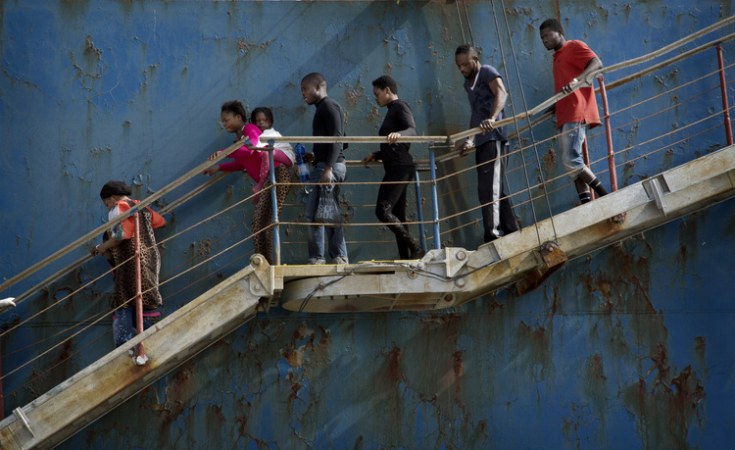The recent drownings of African migrants in the Mediterranean Sea, just south of Sicily, have caught global attention and stirred an uproar.
This is hardly the first time illegal migration by boat has claimed the lives of Africans, though this latest incident has been for many the last straw. European Union member states had to call an emergency meeting in the wake of the recent calamity, the recurrence of the phenomenon having become something of a moral burden for the West.
As former United Nations Secretary-General Kofi Annan tweeted, "The #migrants dying in the #Mediterranean Sea are not unwanted trespassers. They are human beings."
Annan is quite right. The deaths of thousands of human beings in such horrible conditions is nothing short of a human disaster and could not have left the "moral" West indifferent.
Conversely, on the African continent, our leaders do not seem to be bothered by this umpteenth accident. Does this attitude equate to indifference? Is it really that our leaders just don't care? And if they don't, how can we ever hope that this situation will improve?
The issue is far more complex than it seems. Recent events expose not only the inability of African governments to provide jobs for their predominantly youth populations, but they highlight the level of desperation of these young (mostly) men who have little hope of a better future in their countries due to the lack of clear and concrete government policies targeting their demographic.
In my view, the lack of reaction on the part of the African leadership is not due to indifference but rather to discomfort, guilt and helplessness.
One month after the event, Senegal is unable to tell how many of its citizens were victims. This is no doubt the case for each of the other African countries involved.
Senegalese officials and human rights organizations are busy discussing numbers and facts - how many died? How many similar events have taken place in the last year? Where did the Senegalese victims depart from?
Officials went as far as to say that those who have lost their lives left Senegal more than three years ago. In my view, this is a grotesque attempt to shirk the current administration's responsibility. It also completely misses the point.
The bottom line is that even one life lost is one life too many. But as is often the case, Africans turn to the West for solutions, going so far as to critique Europe for calling a meeting to talk about illegal migration without inviting those main players involved: African leaders themselves.
This is ridiculous. It should be Africa that is calling a meeting and inviting Europe, not the other way around. If Africans don't respect themselves, why should they expect respect in return? Why should the West take the lead in African matters?
Until now, no African body has called for an emergency meeting - neither Ecowas nor the African Union. This is despite news of more migrants' boats being intercepted or rescued from the Mediterranean nearly every day.
African leaders need to start getting serious if they want to be taken seriously. Whenever the continent is in a dire situation, the leadership is wanting.
Reports have shown that the migrants come from all over the African continent. Therefore the AU, as the continental body, should take the lead in addressing this issue. They should engage Europe on the best solutions to illegal migration that would address not only the human rights of the migrants, but also the drivers of illegal migration and how it might be curbed.
The attitude of the African leadership contrasts glaringly with that of the African youth who have been very vocal on social media, denouncing the deafening silence of their governments and expressing anger at leaders who are quick to hop on a plane with taxpayers' money to stand with the West when it's #JesuisCharlie, but who are voiceless when the African ship keeps submerging, when it's #Mediterranean #Migrants #Kenya #Garissa and #BokoHaram.
We can salute Africa's youth for taking such a stance. The issue now is how to empower them to push their governments into action. Civil societies all over Africa should go beyond blaming governments, and play a more active role in sensitizing young people and putting pressure on governments to have clear development policies and opportunities for them.
This is no easy task. But it's one that if not addressed sooner rather than later will put thousands more lives at risk.
Khaita Sylla is OSIWA's Grants Manager. Follow Khaita on Twitter @KhaitaSylla


